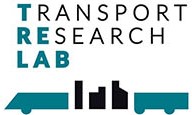Simulating participatory urban freight transport policy-making: Accounting for heterogeneous stakeholders’ preferences and interaction effects
This paper proposes a novel approach to support participatory decision-making processes in the context of urban freight transport through the integration of discrete choice modeling and agent-based modeling. The methodology is based on an innovative multilayer network and opinion dynamics models and applied to the case study of Rome’s limited traffic zone. Simulation results produce a ranking of plausible policies that maximize consensus building while minimizing utility losses due to the negotiation process. These results can be used to support real participatory decision-making processes on freight-related policies accounting both for stakeholders’ heterogeneous preferences and their interaction effects.


